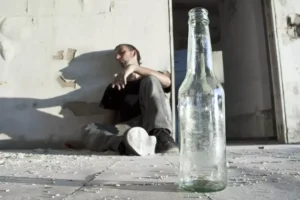
Support groups are instrumental in staying on the path of recovery once out of treatment, allowing for long-term continued care after treatment. In addition, the individuals you meet in support groups can offer encouragement throughout the recovery process and be an invaluable source of support. A person who is actively using drugs or alcohol and experiencing acute intoxication or at risk of impending withdrawal may need to enter a program that offers medically managed detox services.
How Does Outpatient Rehab Work?
- Level 4 care involves inpatient treatment at a hospital or a residential rehab center where round the clock medical care and supervision are provided.
- There are programs for those without insurance, usually at the local state or county level that may have a waitlist to join.
- Fortunately, the amount of treatment options for alcohol addiction has increased significantly in recent years to help assist with this growing concern.
- In another systematic review, Reif et al66 evaluated peer support services for individuals with substance use disorders resulting in ten studies.
The analysts noted they were “cautious about drawing conclusions” from their survey about the impact of GLP-1 drugs on addictive behaviors. While research hasn’t yet proven a causal link, clinical trials are currently underway to better understand the effects of GLP-1s on alcohol and tobacco consumption. There have already been several retrospective studies that have found associations between GLP-1 treatments and lower risks of alcohol and opioid abuse. Zepbound belongs to the class of drugs known as GLP-1 or incretin medications, addiction rehabilitation center which was made popular by Ozempic, Novo Nordisk’s diabetes treatment. These drugs mimic a hormone that interacts with a region of the brain – the mesolimbic system – to reduce appetite and trigger satisfaction after eating.
Experiential Therapy
You may also be able to attend a free rehab center that is either completely covered by your insurance or publicly funded. To find out more about whether your rehabilitation may be partially or fully covered with AAC, fill in your information in the form below. Outpatient rehab is a form of alcohol or drug rehabilitation that allows patients to live at home (or in another safe and therapeutic environment, such as sober living) while still working or going to school. Cognitive behavioral therapy (CBT) is used to help people uncover problematic thoughts or feelings that influence unhealthy behaviors.
What is Inpatient Drug Rehab?

This helps to identify the underlying cause of substance use and find new strategies to meet one’s needs. In addition, by working closely with therapists to acknowledge these deep-seated feelings, individuals are more prepared to identify and avoid temptations during their recovery. Motivational interviewing, or motivational enhancement, is a conversational technique in which a psychologically informed counselor seeks to help a Sobriety person find, strengthen, and capitalize on their own internal motivation to change behavior. Studies show that motivational interviewing helps those struggling with addiction to resolve any ambivalence about giving up drug use and inspires them to commit to behavioral change.

- Begin your recovery at American Addiction Centers (AAC), the leading provider for addiction treatment nationwide, which specializes in evidence-based treatment and mental healthcare services.
- Because of this, outpatient rehabs are suited for individuals with mild forms of substance use disorders and a committed, disciplined approach to recovery.
- You do not have to determine which best fits you and your unique circumstances on your own.
- Experiential therapy utilizes non-traditional treatment methods to help people overcome uncomfortable emotions or events through self-expression.
- Level 4 care is needed when patients have significant withdrawal symptoms or are at risk of severe or complicated withdrawal.
Each element plays a critical role in enhancing the chances of successful recovery. Outpatient treatment programs allow individuals to maintain their daily lives while attending therapy sessions. These programs are suitable for those whose addiction is less severe or who have completed inpatient treatment. If you don’t have private insurance, =https://ecosoberhouse.com/ you may qualify for public insurance programs, such as Medicaid or Medicare. In addition, plans offered through the Affordable Care Act (“Obamacare”) are required to cover substance use and mental health services to the same extent that they cover medical needs.
Benefits of Outpatient Treatment

MAT is one of the many types of treatment that is encompassed by the Harm Reduction approach to substance use. Drug addiction is a curable condition, although the process of recovery is rarely easy and seldom proceeds in a straight line. Relapse is common and should be considered a part of the treatment and recovery process. This is especially true for people who live in areas where treatment centers and providers are scarce. Potential drawbacks might include challenges in mastering the new technology and the possibility of technology failures. But telehealth for all kinds of medical and mental and behavioral health services appears to be effective and here to stay.

SMART Recovery
- AAC operates accredited treatment centers providing high-quality care throughout the United States.
- While it can minimize the immediate temptation to use a substance, it doesn’t automatically confer skills needed for managing recovery under the pressures of everyday life.
- Even if you want to overcome an addiction, you may still be nervous about going to rehab because you don’t know what to expect.
- Outpatient rehab offers similar therapies to those provided in inpatient rehab, but instead of living full-time at the facility, patients return home after treatment each day.
- Further, family therapy can identify and intervene in longstanding relational patterns that may contribute to development of addiction problems in an individual—and the often-extensive fallout from it.
- To the authors’ knowledge, this is the first article to date to take such an approach reviewing controlled studies.
Continuing medication management and therapy services for abstinence can play an important role in long-term recovery. To help manage this, a variety of medications are commonly used to maintain safety through the detox process. Once residential treatment is completed, many step down to outpatient levels of care to continue their recovery journey.

